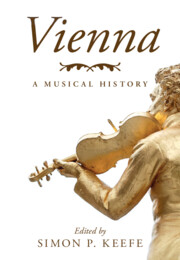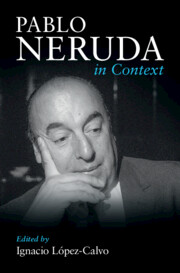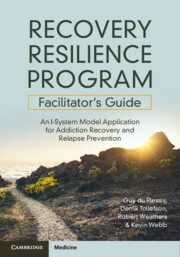Refine search
Actions for selected content:
3412993 results
Part III - Containment
-
- Book:
- Charity After Empire
- Published online:
- 18 December 2025
- Print publication:
- 19 February 2026, pp 253-336
-
- Chapter
- Export citation
3 - Formal Theories of Rational Choice
-
- Book:
- Conversations on Rational Choice
- Published online:
- 27 December 2025
- Print publication:
- 19 February 2026, pp 92-182
-
- Chapter
- Export citation
Chapter 11 - Failure in a Beautiful World
-
-
- Book:
- Aristotle's <i>Parts of Animals</i>
- Published online:
- 31 December 2025
- Print publication:
- 19 February 2026, pp 236-256
-
- Chapter
- Export citation

Labor in Hard Times
- Workers' Legal Mobilization at the European Court of Human Rights
- Coming soon
-
- Expected online publication date:
- February 2026
- Print publication:
- 28 February 2026
-
- Book
- Export citation

Handbook of CTG Interpretation
- From Patterns to Physiology
- Coming soon
-
- Expected online publication date:
- February 2026
- Print publication:
- 28 February 2026
-
- Book
- Export citation

Four Centuries of Women's Musical Salons
- A Cross-Cultural History
- Coming soon
-
- Expected online publication date:
- February 2026
- Print publication:
- 31 March 2026
-
- Book
- Export citation

Vienna
- A Musical History
- Coming soon
-
- Expected online publication date:
- February 2026
- Print publication:
- 31 March 2026
-
- Book
- Export citation

Syrian Intellectuals in Exile
- The Dilemmas of Revolution and the Cost of Leaving
- Coming soon
-
- Expected online publication date:
- February 2026
- Print publication:
- 28 February 2026
-
- Book
- Export citation

Seeing Matters
- A Psychology of the Image and Its Politics
- Coming soon
-
- Expected online publication date:
- February 2026
- Print publication:
- 28 February 2026
-
- Book
- Export citation

Pablo Neruda in Context
- Coming soon
-
- Expected online publication date:
- February 2026
- Print publication:
- 28 February 2026
-
- Book
- Export citation

Antiquity Made Present in Reformation England
- Classical Translation and the Politics of Counsel, 1530–1580
- Coming soon
-
- Expected online publication date:
- February 2026
- Print publication:
- 28 February 2026
-
- Book
- Export citation
Aboriginal Homelands and Economy in Australia's Western Desert
- Martu Ngurrara
- Coming soon
-
- Expected online publication date:
- February 2026
- Print publication:
- 28 February 2026
-
- Element
- Export citation

Recovery Resilience Program Facilitator's Guide
- An I-System Model Application for Addiction Recovery and Relapse Prevention
- Coming soon
-
- Expected online publication date:
- February 2026
- Print publication:
- 28 February 2026
-
- Book
- Export citation

Studies in Greek Literature
- Coming soon
-
- Expected online publication date:
- February 2026
- Print publication:
- 28 February 2026
-
- Book
- Export citation

Double Glass Ceiling
- The Class Effects of Gender Representation
- Coming soon
-
- Expected online publication date:
- February 2026
- Print publication:
- 28 February 2026
-
- Element
- Export citation
The Logic of Corruption
- Why it Persists and Why Reforms Fail
- Coming soon
-
- Expected online publication date:
- February 2026
- Print publication:
- 30 April 2026
-
- Book
- Export citation

The Hindu/Presidency College
- Excellence and Exclusion
- Coming soon
-
- Expected online publication date:
- February 2026
- Print publication:
- 30 April 2026
-
- Book
- Export citation
Attunement to Others
- Multispecies Cohabitation in the Anthropocene
- Coming soon
-
- Expected online publication date:
- February 2026
- Print publication:
- 01 July 2027
-
- Book
- Export citation
Sociology of Gender in India
- Contemporary Issues and Perspectives
- Coming soon
-
- Expected online publication date:
- February 2026
- Print publication:
- 01 July 2027
-
- Book
- Export citation
Critical Perspectives on Data Access for Research
- Coming soon
-
- Expected online publication date:
- February 2026
- Print publication:
- 31 March 2026
-
- Book
- Export citation
